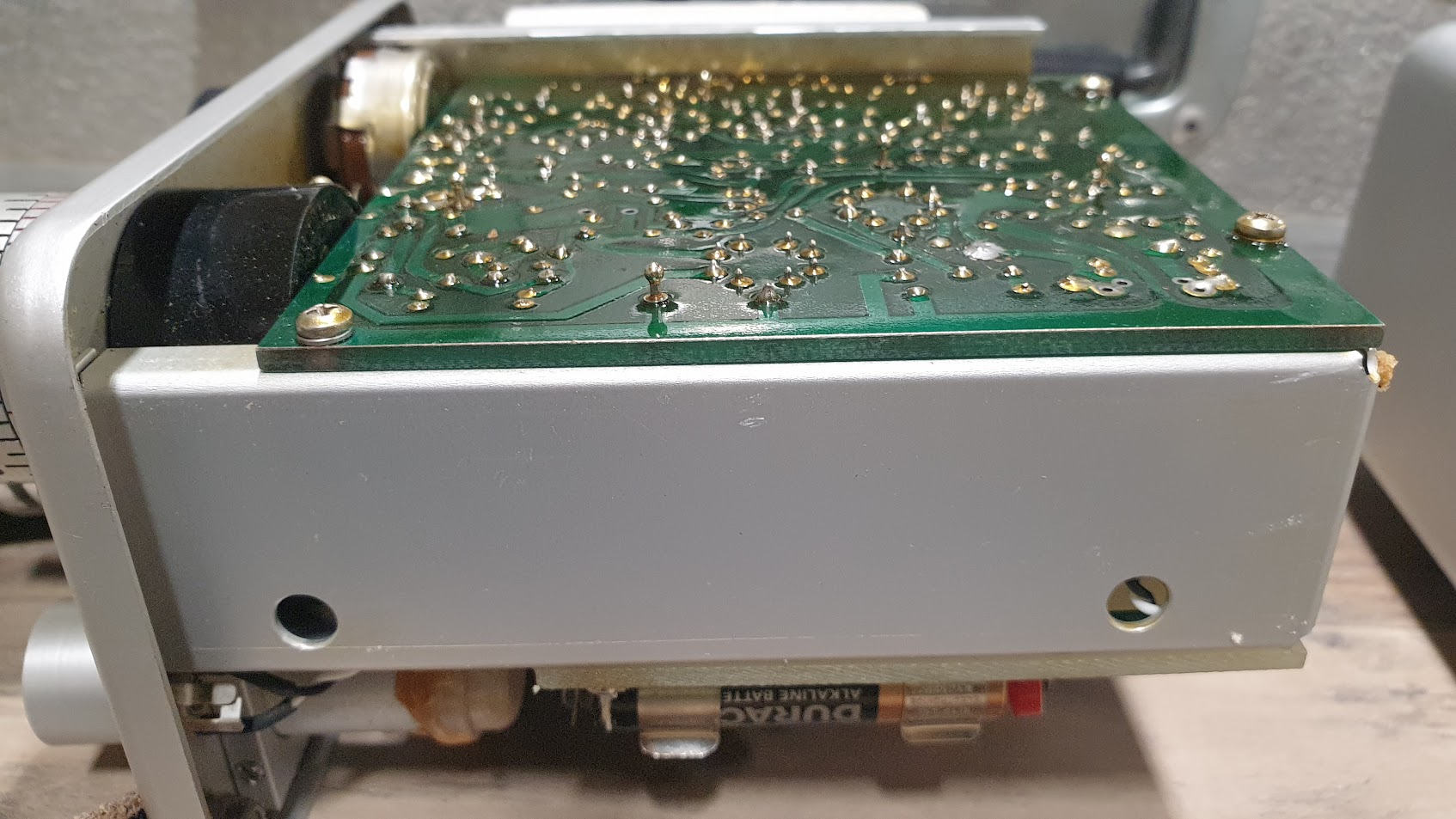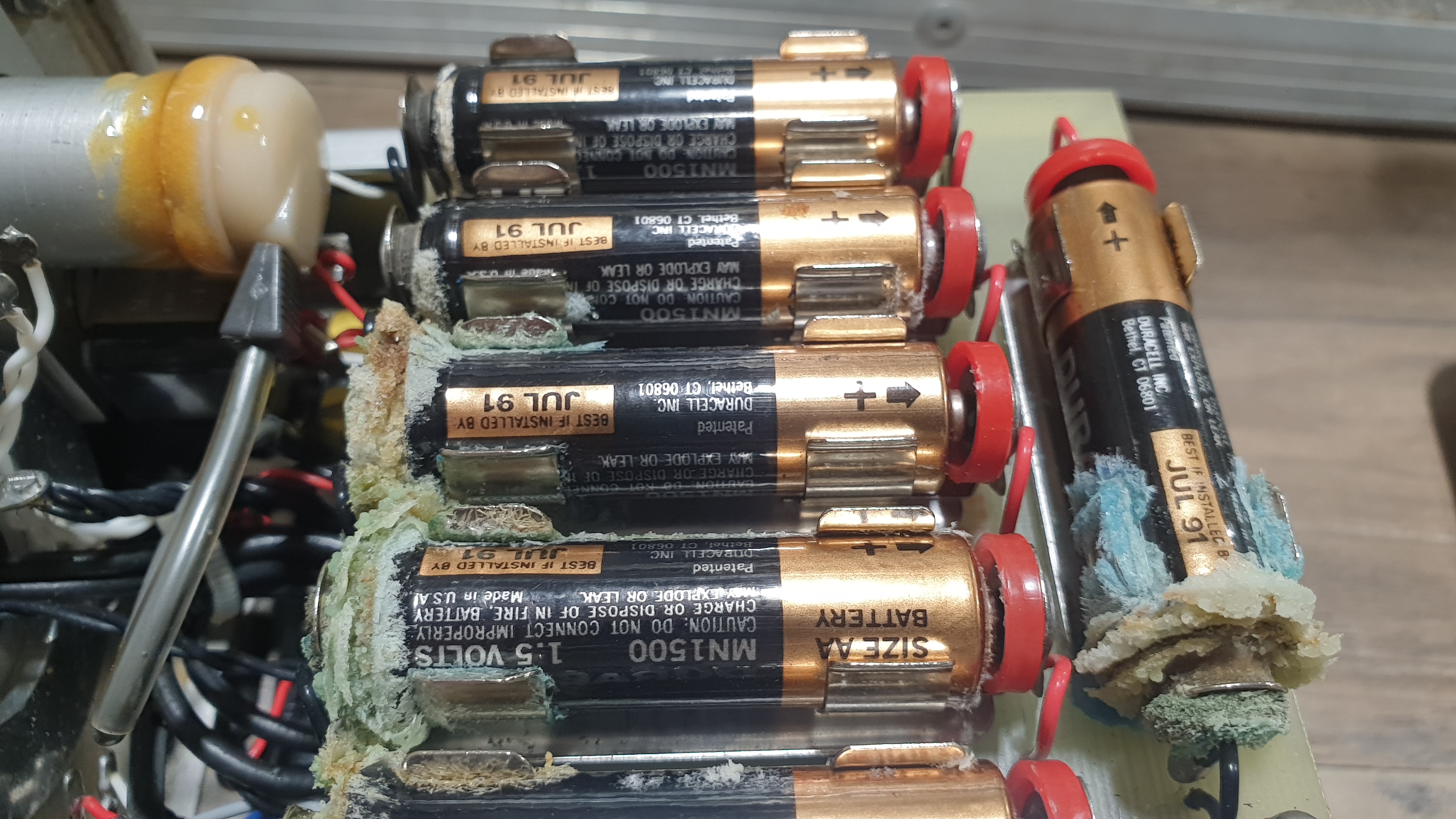Give it the vinegar and baking soda treatment.
Electronics
Projects, pictures, industry discussions and news about electronic engineering & component-level electronic circuits.
Rules
1: Be nice.
2: Be on-topic (eg: Electronic, not electrical).
3: No commercial stuff, buying, selling or valuations.
4: No circuit design or repair, tools or component questions.
5: No excessively promoting your own sites, social media, videos etc.
Ask questions in https://discuss.tchncs.de/c/askelectronics
I greatly prefer citric acid. It comes in crystals so a small tub equals gallons of vinegar, it doesn't smell bad, and you can control the strength by dissolving more crystals into water.
It's incredibly fast compared to vinegar at cleaning battery alkaline.
Citic or citRtic?
Citric. Fixed!
Cool, I thought there was a pretty good chance there are acids of which I've never heard.
Protip: once you dissolve as much of the gunk as possible, take a small metal brush and give the contacts a scrub. If they're coated, this helps open up metal contact surface to give the new batteries a chance.
But if the contacts are too corroded, you may need to MacGyver something with a soldering iron.
Jul 91? Now I feel old.
The instrument is fully analogue, designed in the late 70s. The serial number on the device implies it was manufactured in 87. I contacted the manufacturer and the last person who could service it has long since retired, but they sent me the calibration and tuning documents so I might be able to revive this beauty.

That's actually awesome they sent you anything useful at all.
